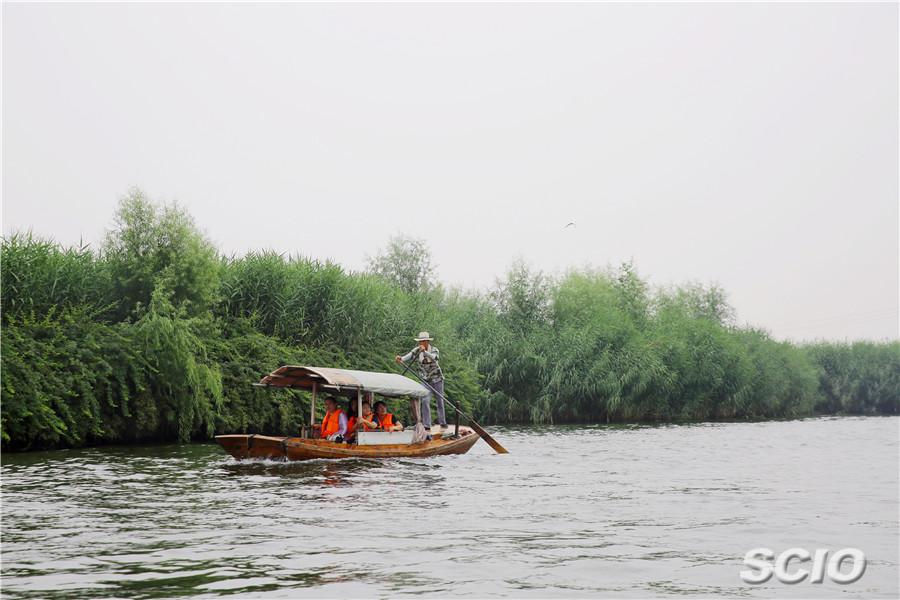Xiongan launches plan to restore Baiyangdian wetland ecology
The budding economic district pledges to prioritize environmental protection and sustainable development in an action plan released on June 28.
By Cui Can
Xiongan New Area launched a campaign to curb pollution and improve the ecology of the Baiyangdian wetland, taking a series of measures such as closing high-polluted plants and installing sewage treatment facilities, according to an action plan released on June 28.

Baiyangdian Lake is the largest freshwater lake in northern China, often referred to as the "kidney of northern China" that functions as a regulator of the region's ecology. [Photo by Guo Yiming/China SCIO]
At the center of the wetland area is Baiyangdian Lake, the largest freshwater lake in northern China, covering an area of 366 square kilometers. The name translates to "white ocean," and it is often referred to as the "kidney of northern China," functioning as a regulator of the region's ecology.
However, the lake was on the verge of becoming an ecological dead zone in the late 1980s due to water loss and pollution. Locals recall its dark and murky water giving off a terrible odor, and spotting algae bloom, dead fish and rotten shrimps on the water surface.
A turning point came with the establishment of Xiongan New Area, the landmark economic district located around the lake. Residents saw hope that the special designation for the region would bring about ecological and environmental restorations for this vast body of water.